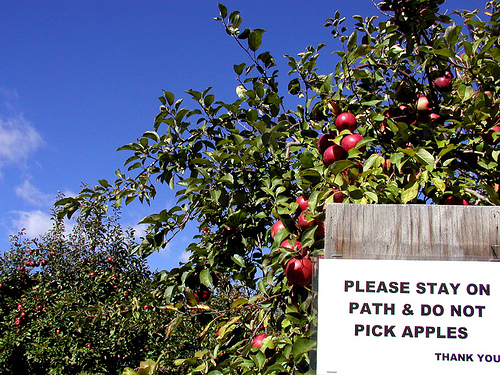We run our website the way we wished the whole internet worked: we provide high quality original content with no ads. We are funded solely by your direct support. Please consider supporting this project.
What Went Wrong in the Garden of Eden?
When Adam and Eve ate from the tree, they imposed their will into the center of Paradise, and this was the act that destroyed Paradise. They invaded the proper domain of God. Instead of recognizing that they were supposed to derive life from the center, they placed themselves in the center. They tried to become “like God.”
The beauty of creation depends on the integrity of the distinction between the complementary centers and the source of the center. The “No Trespassing” sign placed at the center of the garden represents the warning to preserve this boundary and thus the order, beauty, and life of creation. Everything depends on humans remaining humans and not trying to be God—not trying to be their own source center.

Adam and Eve violated this boundary. They thrust themselves into the center of the garden to try to make themselves “wise like God.” They tried to design their own space, as it were, with themselves as the center. And we do the same. We try to make creation—and God—revolve around us. Instead of remaining content being complementary centers, we try to make everything complement us. We attempt to use things and people to derive our worth, meet our needs and expectations, or improve our lives in some way. And we “know good and evil” in the process, for we invariably judge things as “good” or “evil” on the basis of how well they play the idolatrous role we assign them.
Living as the source center means living as judge. But we were not created to function as the source center. We were created to function as complementary centers. We have no life in ourselves to dispense to other centers. Consequently, our center is not one of fullness but of emptiness. Without God as our center, we are not a source of life but a vacuum that sucks life. We can’t radiate life in other centers; we can only try to draw life from them. The world and God revolve around us, and we become a virtual black hole, as depicted by the diagram below.
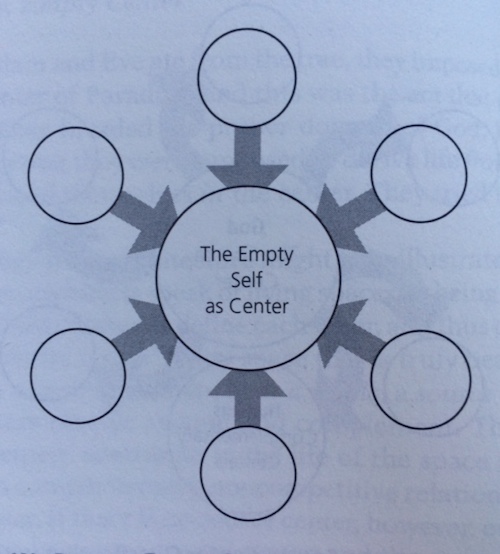
It is out of the depravity of this black hole that we function as a center, playing God, judging good and evil.
This is life “in the flesh” or life “in Adam.” It is life lived under the serpent’s lie and thus life lived as though we were the center. This way of life is diametrically opposed to God, for it makes it impossible for the fullness of God’s love to flow into us and through us.
In this fallen way of life, people and things have worth only to the extent that they fill us. Instead of ascribing unsurpassable worth to others because the Creator does, we ascribe limited worth to people depending on our judgment of them. Do these people love me? Do they please me? Do they benefit me? Do they affirm me? Do they agree with my opinions? We are the ones who declare that someone or something is good or evil, for we have set ourselves up as the center around which everything revolves and, therefore, the standard against which everything is measured.
—Adapted from Repenting of Religion, pages 68-71
Category: General
Tags: Garden of Eden, Idolatry, Judgment, Repenting of Religion, Sin, Temptation
Topics: Creation Care
Related Reading

Get LIFE!
We must always be aware of the fact that there is a constant lure toward idolatry in our demonically-oppressed world. It is profoundly easy to be getting all one’s LIFE from Christ and to be completely free of idols one day, but begin to be gripped by idol cravings the next. It’s also profoundly easy…
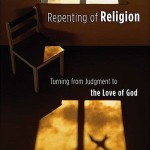
Quotes to Chew on: God’s Love When We Rebel
“Despite the fall and its consequent curse, however, God’s love was not deterred. God is love. God doesn’t stop being God simply because the humans he created have rebelled against him. God does not abandon his goal of having others share in the eternal, ecstatic dance of the Father, Son and Holy Spirit. The world…
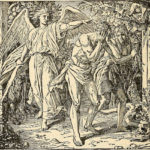
What is “Original Sin”?
I get asked about “original sin” quite a bit. Are people born guilty? Many times questions like this originate from folks who are worried about whether babies who die without being baptized go to hell. This is what I was taught as a young Catholic boy, and I have to confess I now find the…
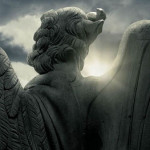
6 Things the Church Fathers Can Teach Us about Spiritual Warfare
Image by Christina Saint Marche via Flickr Unlike our thinking today about the source of good and evil in the world, the early church fathers, including Irenaus, Athenagorus, Origen, and others before Augustine, possessed a warfare worldview. Here are 6 ideas that are common in their writings: The Reality of the “World-in-Between” The church fathers assumed…
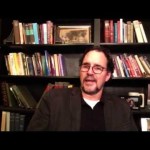
Penal Substitution View of Atonement: Did God the Father Just Need to Vent?
In this video blog, Greg outlines the penal substitution view of atonement which says that the Father poured out his wrath on Jesus instead of us so that we could be forgiven. This view is very common and you might even be nodding your head in agreement with that description. However, this view creates some…
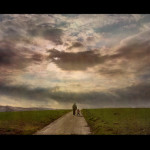
To What Extent is the Future Open to Real Possibilities?
We frequently get questions about the extent to which the future is composed of actual possibilities rather than settled or determined. Here’s what Greg has to say in response to these questions: 1. We can be confident the future is settled, to the extent that the Bible depicts the future as settled. This, of course,…

